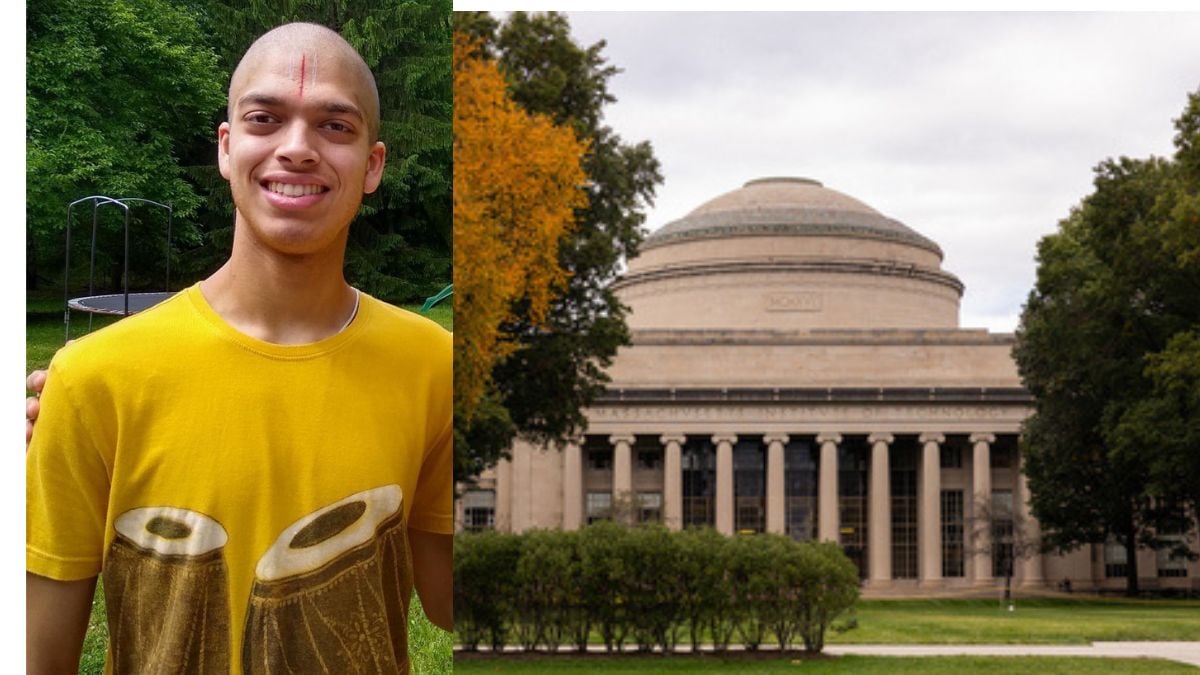Prahlad Iyengar, a PhD student of Indian origin at the Massachusetts Institute of Technology (MIT), has been suspended from campus until January 2026 following the publication of a controversial pro-Palestine essay. The essay, titled “On Pacifism,” appeared in the October edition of Written Revolution, a student journal.
Who is Prahlad Iyengar?
Studying in the Department of Electrical Engineering and Computer Science, at MIT. He is known for his involvement in activism and has been an outspoken advocate for pro-Palestinian causes, particularly within academic spaces.
His academic journey has been marked by both his achievements as a graduate student and his engagement in political discussions, especially surrounding the Israeli-Palestinian conflict.
So What Happened & Why Did MIT Suspend Him?
In October, Iyengar published an essay titled “On Pacifism” in the student journal Written Revolution, sparking significant controversy. The essay, which expressed pro-Palestinian views, led to his suspension from campus until January 2026.
MIT’s administration accused him of including language that “could be interpreted as a call for violent protests,” and of incorporating images linked to the Popular Front for the Liberation of Palestine (PFLP), a group designated as a terrorist organization by the U.S. government.
MIT claimed these images violated campus policies
However, Iyengar denied responsibility for the inclusion of these images, saying that he did not supply them with his essay. He argued that the accusations were unfair and infringed upon his right to free expression.
In a statement released by his lawyer on X, Eric Lee, Iyengar defended his position, stating, “The administration accuses me of supporting ‘terrorism’ because of these images, which I did not include.”
This is not the first time Iyengar has faced disciplinary action at MIT
He was previously suspended following his involvement in pro-Palestinian protests at the university last year. The recent suspension is seen as part of a broader pattern of repercussions for his political views and activism on campus.
Campus Backlash & Protests
Iyengar’s suspension has caused strong opposition, especially from the MIT Coalition Against Apartheid, which has called it an effective expulsion. The group wants a broader movement against what it sees as the criminalisation of student activism. In response, the Coalition started a campaign encouraging other organizations and institutions to condemn MIT’s actions and oppose what they call “repression” of free speech and political expression on campus.
The group also criticised the university for banning Written Revolution, a well-known platform for student activism. They argued that this could lead to a harmful trend of silencing student voices in academic spaces.
Impact on Iyengar’s Academic Future
Iyengar, a promising PhD candidate, has described his suspension as “extraordinary” and warned of its broader implications for academic freedom.
In a statement, he expressed concern that MIT’s actions could undermine the open exchange of ideas on campus. “Expelling me and banning Written Revolution sets a dangerous precedent,” he warned.
Next Steps & Wider Implications
Currently, Iyengar is appealing the suspension, seeking to reduce the length of the ban and clear his name. The MIT Coalition Against Apartheid continues to rally support, urging institutions across the country to stand against what they see as an attack on student activism. The case has raised important questions about the boundaries of political expression on American college campuses, particularly in relation to sensitive international issues like the Israeli-Palestinian conflict.
